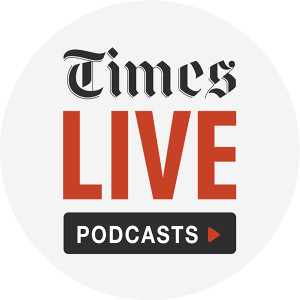
Covid-19 has left us virtually exhausted
Loading player...
The digital revolution may be convenient and cost-effective, but are we all in danger of online overload, asks Rayner Canning, business development director at the University of Cape Town’s Graduate School of Business (GSB).
Everyone meets onscreen these days. Whether it’s boardroom discussions, client meetings, or executive education and MBA classes, the business world has gone virtual. Covid-19 has simply accelerated the process.
But this ease of communication may also be a curse. Some CEOs and managers feel the best way to keep their finger on the corporate pulse is through endless online meetings. The same applies to discussions at every business level. Informal conversations that could once have been concluded through a quick phone call have become major productions through Zoom, Skype or Teams. Canning says: “We are entering a big phase of online fatigue. People feel they can’t cope with constant back-to-back meetings.”
It’s a lesson business schools are heeding as they grow their online interaction with students. “We are in a new environment, on an accelerated learning curve,” says Canning. Many schools are still determining the best way to provide education.
Beverly Shrand, academic director of GSB’s international management programme, says “screen fatigue” is also a problem for students. To avoid this, it’s often necessary to cut course content to keep students engaged online.
This can be a good thing because it forces lecturers to be clearer about their learning outcomes and shape their programmes accordingly. There’s no room for unnecessary material. However, Mignon Reyneke, the school’s associate professor of digital marketing, worries that social and interpersonal skills are lost in this process. She says: “Reading students’ faces, creating a team spirit among the class, learning to engage with people and so forth ... these all get lost online.”
Similarly, Shrand rues the loss of opportunity for students to “enhance their learning through informal conversations with their faculty or peers during tea breaks and lunches”.
On MBA programmes, Reyneke says it is difficult to recreate class debates, “where a great deal of the learning takes place”.
All these challenges will be taken into account in the post-Covid education environment – though Reyneke believes some people have overdramatised the long-term impact of the pandemic.
She says: “While we may live with the remnants of Covid-19 for the foreseeable future and while some elements of education may change as a result, I don’t think everything will be changed forever. ...
Everyone meets onscreen these days. Whether it’s boardroom discussions, client meetings, or executive education and MBA classes, the business world has gone virtual. Covid-19 has simply accelerated the process.
But this ease of communication may also be a curse. Some CEOs and managers feel the best way to keep their finger on the corporate pulse is through endless online meetings. The same applies to discussions at every business level. Informal conversations that could once have been concluded through a quick phone call have become major productions through Zoom, Skype or Teams. Canning says: “We are entering a big phase of online fatigue. People feel they can’t cope with constant back-to-back meetings.”
It’s a lesson business schools are heeding as they grow their online interaction with students. “We are in a new environment, on an accelerated learning curve,” says Canning. Many schools are still determining the best way to provide education.
Beverly Shrand, academic director of GSB’s international management programme, says “screen fatigue” is also a problem for students. To avoid this, it’s often necessary to cut course content to keep students engaged online.
This can be a good thing because it forces lecturers to be clearer about their learning outcomes and shape their programmes accordingly. There’s no room for unnecessary material. However, Mignon Reyneke, the school’s associate professor of digital marketing, worries that social and interpersonal skills are lost in this process. She says: “Reading students’ faces, creating a team spirit among the class, learning to engage with people and so forth ... these all get lost online.”
Similarly, Shrand rues the loss of opportunity for students to “enhance their learning through informal conversations with their faculty or peers during tea breaks and lunches”.
On MBA programmes, Reyneke says it is difficult to recreate class debates, “where a great deal of the learning takes place”.
All these challenges will be taken into account in the post-Covid education environment – though Reyneke believes some people have overdramatised the long-term impact of the pandemic.
She says: “While we may live with the remnants of Covid-19 for the foreseeable future and while some elements of education may change as a result, I don’t think everything will be changed forever. ...

